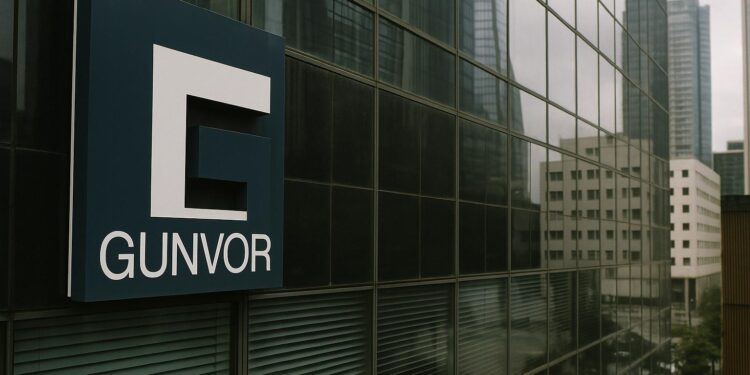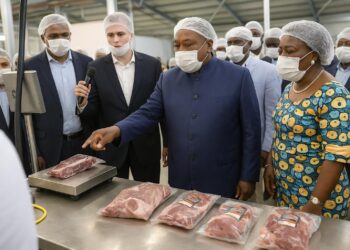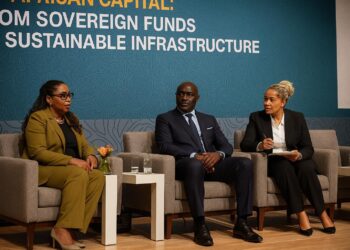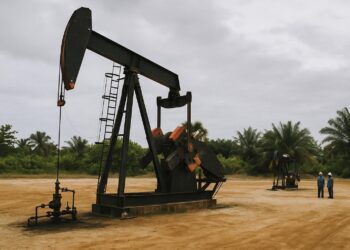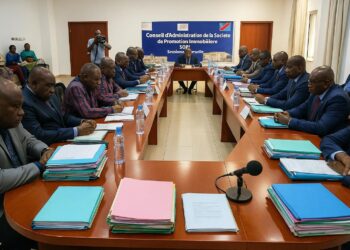Gunvor lines up milestone acquisition
Energy traders woke up to a jolt on 30 October, when Moscow-based Lukoil confirmed it had accepted an indicative offer from Geneva’s Gunvor to absorb all of the Russian major’s international upstream assets, including prized stakes scattered across West Africa’s deepwater frontier.
Both companies announced they had hammered out the principal commercial terms and are now drafting a binding sale-and-purchase agreement, a step that could reshuffle competitive dynamics in Nigeria, Ghana, Congo-Brazzaville and Egypt if regulators from Washington to Abuja deliver the required green lights.
Asset overview: from Nigeria to Congo-Brazzaville
For oil executives, the crown jewel remains the 20 % non-operated interest in Nigeria’s ultra-prominent OPL 245, home to the undeveloped Zabazaba and Etan discoveries now estimated at more than 560 million barrels of recoverable crude, according to engineering consultant DeGolyer & MacNaughton.
In the Gulf of Guinea, Lukoil’s 38 % share in Ghana’s Deepwater Cape Three Points aligns the trader with operator Aker Energy, which is finalising a phased development concept around the Pecan field and must submit a revised plan of development to Accra before year-end.
Closer to Central Africa, the Russian company holds 25 % in Congo-Brazzaville’s Marine XII licence, an acreage already producing more than 140,000 barrels per day under the stewardship of Eni, and earmarked for an onshore LNG project expected to reinforce the country’s export capacity.
Add to that smaller concessions in Egypt’s Eastern Desert and Gulf of Suez, where mature fields still generate steady cash flow, and Gunvor is looking at an African package that analysts at Wood Mackenzie value at just under 1.8 billion dollars on a risked basis.
Regulatory hurdles and OFAC clearance
Despite the handshake, completion hinges on permissions from the US Office of Foreign Assets Control, because sanctions imposed in 2022 restrict American entities from dealing with Rosneft or Lukoil; Gunvor must therefore secure a specific licence that shields financiers, insurers and service providers from secondary penalties.
The US Treasury has already issued a wind-down authorisation valid until 21 November 2025, but lawyers stress that such general licences merely buy time; they do not constitute blanket approval for a change of control, especially when strategic hydrocarbon reserves are located in politically sensitive basins.
Beyond Washington, approvals will be required from the Nigerian Upstream Petroleum Regulatory Commission, Ghana’s Ministry of Energy, Congo’s Hydrocarbons Ministry and Egypt’s General Petroleum Corporation, each of which can impose local-content obligations or capital-gains taxes that could adjust the final consideration payable to Lukoil.
Market drivers behind Lukoil retreat
Lukoil’s divestment narrative began unfolding shortly after the European Union restricted technology exports to Russia’s Arctic projects; deprived of certain offshore services and dollar financing, the board prioritised cash preservation and risk containment by exiting assets that require multi-billion-dollar commitments over the next decade.
Gunvor, conversely, is doubling down on upstream plays to complement its trading book and secure long-term barrels against a murky price outlook; chief executive Torbjörn Törnqvist recently told analysts the firm is ready to invest “patient capital” where logistics integration can unlock incremental margins.
Bankers familiar with the dossier argue that vendor financing or crude pre-payment structures could lower Gunvor’s cash outlay upfront, an option particularly attractive under today’s high-interest environment and one that mirrors strategies used by Trafigura and Vitol in comparable acquisitions.
Implications for Congo’s Marine XII license
Congo-Brazzaville’s hydrocarbon authorities are monitoring the transition closely; officials say an energised partner able to navigate Western compliance regimes would accelerate field optimisation and the onshore LNG scheme at Pointe-Noire, supporting President Denis Sassou Nguesso’s ambition to lift export revenues without compromising local gas monetisation.
Eni, still operator, has already sanctioned an early-production LNG barge expected in 2024, and the entry of Gunvor could reinforce the offtake chain by deploying its marketing desks in Singapore and Geneva, thereby enhancing price discovery for Congo’s forthcoming excess cargoes.
Financing, services and transition angle
Industry observers note that Gunvor’s Swiss domicile provides lenders a neutral jurisdiction, distancing future cash flows from exposure to Russian sanction risk; this detail may entice export-credit agencies to back floating storage, power-generation or flaring-reduction modules included in the revised development plans.
On the services side, Schlumberger and Baker Hughes signalled they could resume certain high-pressure completions once contractual ambiguity clears, an operational upside that dovetails with Brazzaville’s agenda to leverage international know-how and boost local employment through targeted capacity-building programmes.
Timeline investors should monitor
Advisers expect a definitive agreement in the first quarter of 2024, followed by sequential approvals, with the Marine XII interest likely closing last because Congolese law triggers a pre-emption right for the national oil company; market participants will watch that window for clues about valuation and residual sanction exposure.
Regional outlook for investors
Should the transaction close, Congo-Brazzaville could position itself as a hub for flexible LNG in the Gulf of Guinea, while Nigeria and Ghana would gain an experienced marketer amid ongoing fiscal revisions, a combination analysts believe could soften project break-evens by two to three dollars.

































